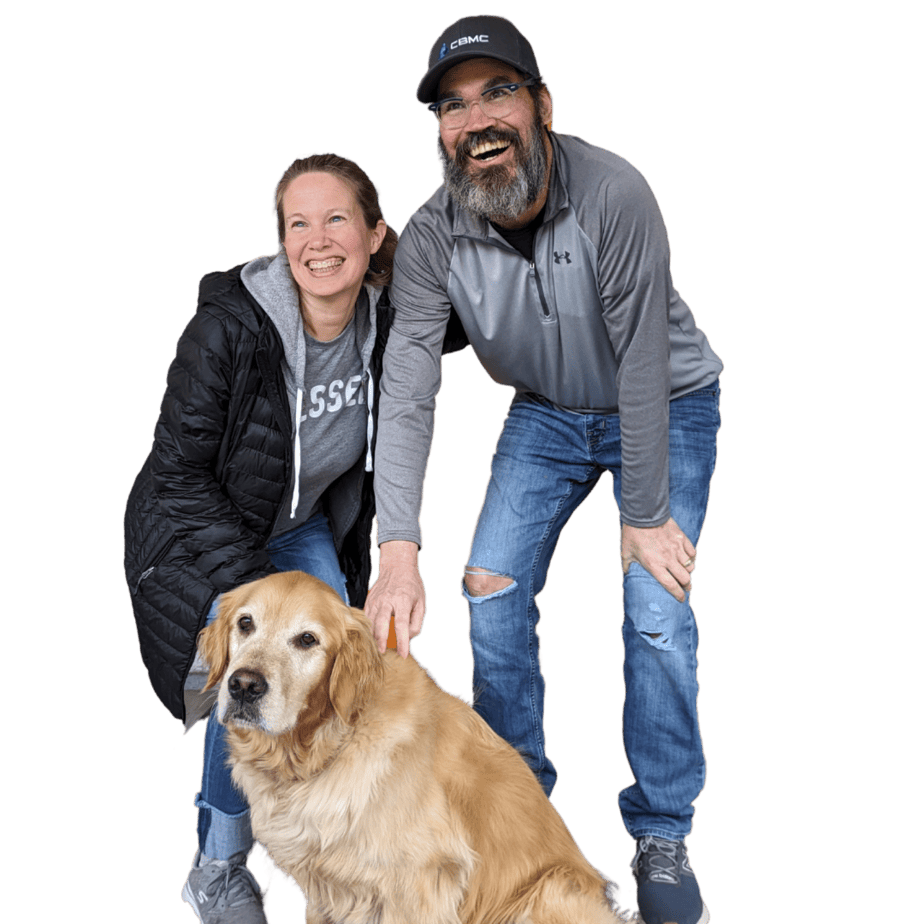
Tips for Caregivers, from Caregivers
At Transplant House we know that no one understands what it means to be the caregiver to a loved one on the transplant journey better than those who have lived that journey themselves. That’s why we collected the following tips from Transplant House guests over the years, covering everything from navigating the medical side of transplant to caring for yourself throughout the process.
→ Coming to Cleveland from out of state? Click here for caregiver tips specifically for guests traveling from outside of Ohio.
Hospital & Doctor Visits
Keep detailed notes & don't hesitate to ask questions
- Take notes when meeting with doctor and coordinators.
- Keep a binder or notebook with:
- lab results
- information from doctor visits
- paper for you to take your own notes
- a calendar for appointments
- a list of important phone numbers.
- Know who the doctors, nurses, and other hospital staff involved in the care of your loved one are.
- There's no such thing as a stupid question – the transplant journey is complex and filled with uncertainty. It's normal to have questions!
Do what your doctors tell you
- Closely follow the instructions of your doctors and coordinators pre- and post-transplant.
- Don't "push the envelope" to see what you or your patient can get away with.
Your care team
- "Nurses are humans and they are not just taking care of one transplant person. Showing you appreciate them and not making their job harder truly can make their day."
Never be afraid to ask questions. We go into this uneducated and without experience. It gets hard at times.
Angela Fernandez, caregiver to husband Lorenzo

Financial Assistance & Support
Financial Resources
- Help Hope Live – Free fundraising platform and direct assistance from a coordinator to raise funds to cover costs associated with transplant.
- COTA – Fundraising platform for children and young adults; open to adult recipients whose transplant need began in childhood or young adulthood.
- Family Medical Leave – some states have medical leave programs. You can see the list here.
Food Assistance
- University Hospitals has a food pantry at their main campus for patient families who meet certain income criteria. Ask your medical provider about their Food for Life Program.
Caring for Your Patient Pre- and Post-Transplant
What to expect
- People think that once the transplant surgery is done, it's done, but its a new way of life.
- The transplant journey is a roller coaster and plans can change suddenly.
- Between medication and shocks to their system, your patient may become agitated or say hurtful things. It's the illness.
- Watch out for muscle wasting and substantial weight loss.
- Anti rejection meds can and will cause brain fog. Don't be surprised if you're asked the same question, or your loved one brings up the same thing multiple times throughout the day. This can persist for some time post-transplant.
Keeping family & friends updated
- Create a Facebook group or use an app like CaringBridge to keep family and friends updated so you don't have to share the same news over and over again with family and friends back home
The biggest thing I have learned as a caregiver is the transplant journey is one step forward and two steps back. You have to take the good days when you get them because those help overcome the bad days.
Matthew McKinney, caregiver to wife Katelyn who received a small bowel transplant in 2022

Do it because you can. Clear your mind and gain some sense of normalcy, even if its just for a moment. You need to get away from your all-consuming role of being a caregiver and take care of yourself. It’s ok!
Lizz Mishreki, Caregiver to husband Jerry who received a liver transplant in 2018
Self Care
Caring for your own emotional and physical health
- Get plenty of rest. You have to take care of yourself first so you can give the support your patient needs.
- Keep a personal journal – journalling can relieve stress, boost confidence, and help organize your thoughts.
- Give yourself permission to take time for yourself. Whether its to take a walk, read a book, watch tv, or some other activity that gives you time to step back from being a caregiver, these moments will recharge your own energy.
Meet other caregivers
- Meet your fellow caregivers at the hospital and at Transplant House. Share stories, laugh together, fold laundry together – all to feel normal again for a moment.
- Community is important. No one else will ever know exactly what you are going through, not even your own family; but a caregiver will. Lean on them.
- Share a meal with other caregivers and their loved ones.
- Host company in your apartment. It doesn't have to be a full spread – it could be cookies and ice cream from Walmart. Make a pot of coffee. No one's judging. Visit and feel normal again. It's a nice treat.
It's ok to ask for help
- You're going to need support and there are people who want to give you that support! Never be afraid to ask for help.
Laugh!
Have a caregiver tip of your own? Email us and we'll add it to the list!

